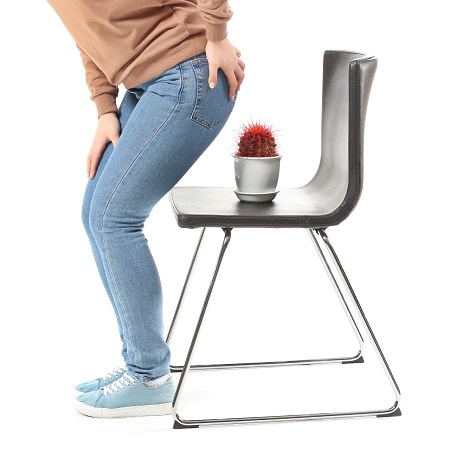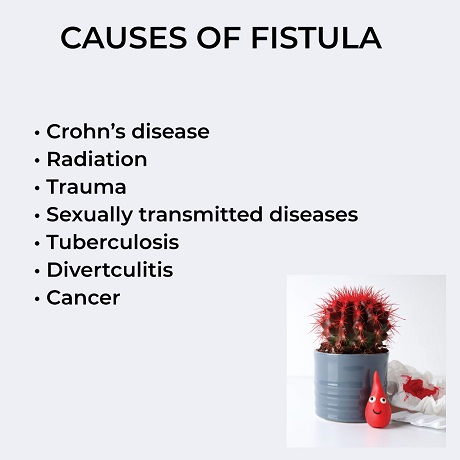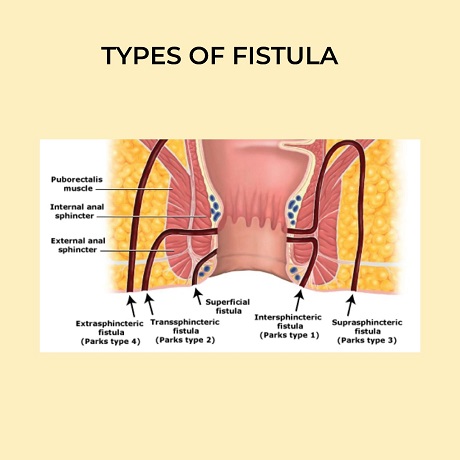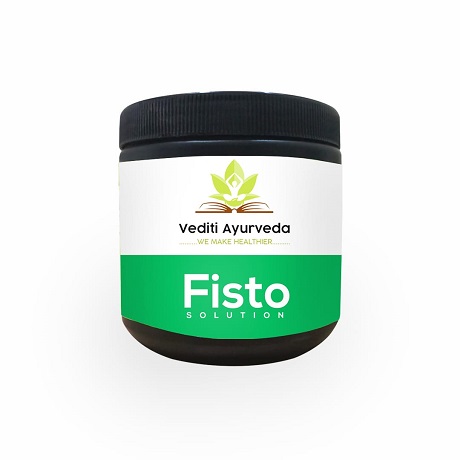Anal fistula is a painful condition that affects many people worldwide. This condition arises due to the formation of an abnormal tunnel or passageway that connects the inside of the anus to the skin around it. The condition can cause severe pain, discomfort, and other complications if left untreated. In this article, we will discuss anal fistula in detail, its causes, symptoms, diagnosis, and treatment options.
An anal fistula is a condition in which an abnormal passageway or tunnel develops between the inside of the anus and the skin around it. The passageway forms when an infection in an anal gland spreads to the skin, resulting in an abscess. The abscess then drains pus, which creates the fistula.


Causes of Anal Fistula
The most common cause of anal fistula is an infection that occurs in an anal gland. Other causes may include:
- Crohn’s disease
- Sexually transmitted infections (STIs)
- Cancer of the anus or rectum
Causes of Anal Fistula
The leading causes of an anal fistula are clogged anal glands and anal abscesses. Other, much less common, conditions that can cause an anal fistula include:
• Crohn’s disease
• Radiation
• Trauma
• Sexually transmitted diseases
• Tuberculosis
• Divertculitis
• Cancer
Symptoms of an Anal Fistula
• Frequent anal abscesses
• Pain and Swelling around the anus
• Bloody or foul-smelling drainage from an opening around the anus
• Bleeding
• Fever, chills and a general feeling of fatique

The symptoms of anal fistula may vary depending on the severity of the condition. Common symptoms include:
- Pain and discomfort around the anus
- Discharge of pus or blood from the anus
- Swelling and redness around the anus
- Itching around the anus
- Fever and chills

SYMPTOMS OF FISTULA?
Symptoms of internal piles include:
- The blood in the stool consistent with the rectal bleeding.
Symptoms of external piles include:
- Itchy anus.
- Swellings around the edges of anus.
- Rough humps near the anus that are painful or sensitive.
- Pain in the anal area, especially while sitting down.
- An uneasy feeling of need to poo, even after going to the toilet.


Diagnosis of Anal Fistula
A doctor can diagnose anal fistula through a physical examination of the anus and rectum. They may also perform a digital rectal exam or use an anoscope or proctoscope to look for signs of infection or inflammation.
Types of Anal Fistula
Different types of anal fistulas are classified by their location. In order of most common to least common, the various types include: Intersphincteric Fistula The tract begins in the space between the internal and external sphincter muscles and opens very close to the anal opening.
Transphincteric fistula. The tract begins in the space between the internal and external sphincter muscles or in the space behind the anus. It then crosses the external sphincter and opens an inch or two outside the anal opening. These can wrap around the body in a U shape, with external openings on both sides of the anus (called a horseshoe fistula).
Suprasphincteric fistula. The tract begins in the space between the internal and external sphincter muscles and turns upward to a point above the puborectal muscle, crosses this muscle, then extends downward between the puborectal and levator ani muscle and opens an inch or two outside the anus.
Extrasphincteric fistula. The tract begins at the rectum or sigmoid colon and extends downward, passes through the levator ani muscle and opens around the anus. These fistulas are usually caused by an appendiceal abscess, diverticular abscess or Crohn’s disease.

Treatment Options for Anal Fistula
The treatment for anal fistula depends on the severity of the condition. Mild cases may be treated with antibiotics and pain relievers. In severe cases, surgery may be necessary to remove the fistula.
Fistula Ayurvedic Treatment without surgery at Vediti Ayurveda
Ayurveda is an ancient Indian system of medicine that uses natural herbs and remedies to treat various ailments. According to Ayurveda, anal fistula is caused by an imbalance of the three doshas – Vata, Pitta, and Kapha. The Ayurvedic treatment for anal fistula involves a combination of dietary changes, herbal remedies, and lifestyle modifications.
Dietary Changes
According to Ayurveda, a diet that is high in fiber and low in fat can help to prevent anal fistula. Foods that are rich in fiber include fruits, vegetables, whole grains, and legumes. It is also recommended to avoid spicy, oily, and processed foods.
Herbal Remedies
Several herbs are known for their healing properties in Ayurveda. Some of the herbs that may be used to treat anal fistula include:
- Triphala – a combination of three fruits that is used to improve digestion and reduce inflammation
- Guggulu – a resin that is used to reduce inflammation and promote healing
- Neem – a tree that is used to treat infections and boost the immune system
- Turmeric – a spice that is used to reduce inflammation and boost the immune system
Lifestyle Modifications
Ayurveda recommends making several lifestyle changes to help prevent anal fistula. These include:
- Practicing good hygiene, including washing the anal area with warm water after bowel movements
- Avoiding constipation by drinking plenty of water and eating a diet that is high in fiber
- Avoiding sitting for long periods of time, which can put pressure on
WHY TO CHOOSE VEDITI AYURVEDA FISTO SOLUTION AND FISTULA CARE AS AYURVEDIC MEDICINE FOR FISTULA ?
Vediti Ayurveda Fisto Solution and Fistula Care is an excellent choice for people seeking an Ayurvedic medicine for fistula treatment. This medication has gained popularity due to its effectiveness and natural composition.
Here are some reasons why you should choose Vediti Ayurveda Fisto Solution and Fistula Care as your Ayurvedic medicine for fistula treatment:
Natural Ingredients
Vediti Ayurveda Fisto Solution and Fistula Care is made using natural ingredients such as turmeric, neem, and guggulu. These ingredients have been used in Ayurvedic medicine for centuries and are known for their healing properties.
No Side Effects
Unlike other medications that may have adverse side effects, Vediti Ayurveda Fisto Solution and Fistula Care has no side effects. This medication is safe for use and does not cause any harm to the body.
Effective in Fistula Treatment
Vediti Ayurveda Fisto Solution and Fistula Care is an effective medication for treating fistula. It helps to reduce inflammation, heal the wound, and prevent the recurrence of fistula. Regular use of this medication can help to alleviate the symptoms of fistula and improve the overall health of the individual.
Easy to Use
Vediti Ayurveda Fisto Solution and Fistula Care is easy to use and can be taken orally. The medication comes in the form of capsules, which can be taken with water after meals.
Affordable
Vediti Ayurveda Fisto Solution and Fistula Care is an affordable medication, making it accessible to people from all walks of life. The cost of this medication is reasonable, and it provides an excellent value for money.
In conclusion, Vediti Ayurveda Fisto Solution and Fistula Care is an excellent Ayurvedic medicine for fistula treatment. Its natural composition, effectiveness, safety, ease of use, and affordability make it a popular choice among people seeking Ayurvedic treatment for fistula.








